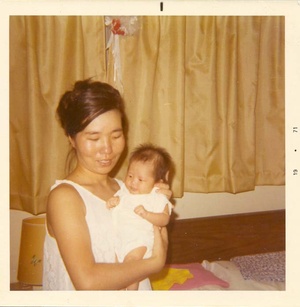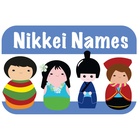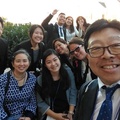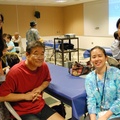When my mother was pregnant with me…in the time before ultrasounds…Dr. Shigekawa (many Los Angeles area Japanese Americans of several generations were delivered by her) told her that I would be a boy. So, my parents had decided to name me Richard Murakami.
When I came out…surprise! It’s a girl! I’ve never asked why, but my mother decided to name me after a soap opera character—Victoria from One Life to Live. However, they didn’t name me “Victoria”—my legal name is “Vicky.” The character’s nickname is Vikki (who also suffers from multiple personality disorder, and whose alter-ego is Nikki). I’m not sure how my parents came up with the spelling of Vicky with a “y”. There are many ways that people spell the name, but “Vicki” with an “i” seems to be the most prevalent.
In school, whenever it was time for yearbooks, I would print out my name, hoping that people would notice my correct spelling, but inevitably looking through my yearbook later, I would find a variety of spellings. I’m not sure if that has anything to do with how I came to be a good speller, and why I take more notice of how other people’s names are spelled.
My mom said that she asked one of my aunts to come up with my middle name of “Kumi.” When I asked my aunt once about it, she couldn’t remember how she came up with it. No one ever really calls me by middle name. I’m not sure if I would even respond if someone called out with that name. On my mother’s side some of my cousins are always called by their first (English) names, while others by their Japanese names. I’m not sure how they determined which would be used within the family, but it’s sometimes confusing when I see them outside of the context of family and they use their other names.
Growing up, I would always hear different mispronunciations of my last name on the phone or at school by teachers. Often, I would hear it as “Murakama” and would wonder if my name was misspelled in the attendance records. I finally realized that they didn’t know how to properly pronounce the “i” at the end. The strangest mispronunciation sounds something like “Mur-rakka-mee,” which sounds something more European, perhaps Polish?
In Japanese, there is no “v” sound. The closest equivalent is more like a “b,” so when my aunts and uncles would call my name, it sounded more like “Bik-ki”…which was especially unfortunate because my aunt (the one who selected my middle name) had a Chihuahua named “Binky” and I couldn’t tell whether she was calling me or her dog.
In fact, many of my cousins were given names that my aunts and uncles can’t pronounce—“Kathy” sounded like “Kashee”; “Wesley” sounded like “Weshuree”; and “Stanley” became “Shutanree.” When I was young, I always swore that if I ever had children, I would give them names that all of our relatives could pronounce properly.
It wasn’t until I got married, that I realized that there were also sounds in Japanese that Americans could not pronounce. I couldn’t figure out why people called asking for “Mr. Tasuda” or just “Mr. Suda”. It finally dawned on me that there are no “tsu” sounds in English.
I can’t say for sure that…or how…these different issues with my names have affected my sense of self, but thinking about it now, I think somehow they must have.
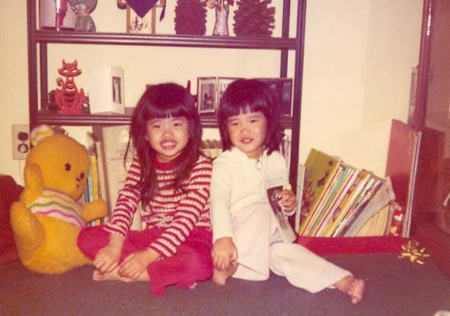
© 2014 Vicky K. Murakami-Tsuda


